Fred Kavli Plenary Lecture
The AAS Vice Presidents name a special invited lecturer to kick off each AAS meeting with a presentation on recent research of great importance. The Kavli Foundation's generous support covers the lecturer's travel expenses and as well as promotional expenses.

2024 - Rachel Bezanson & the UNCOVER JWST Project Team
244th AAS Meeting June 2024, Madison, WI
For the remarkable diversity of ground-breaking science that has resulted from their deep imaging and spectroscopic survey of Pandora's Cluster with JWST.

2024 - Stephen Taylor & the NANOGrav Collaboration
243rd AAS Meeting January 2024, New Orleans, LA
For the transformative discovery of compelling evidence for a nanohertz gravitational-wave background, identified via more than 15 years of pulsar timing observations.

2023 - Daniel Scolnic
242nd Meeting June 2023, Albuquerque, NM
For his insightful research using supernovae as cosmological probes.
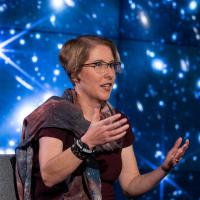
2023 - Jane Rigby
241st Meeting January 2023, Seattle, WA
For her impactful research achievements, but also for her role at the forefront of commissioning and operations of JWST.

2022 - Jane Greaves
240th Meeting June 2022, Pasadena, CA
For her team’s unexpected discovery of phosphine in the atmosphere of Venus and its exciting implications for the possibility of life.

2021 - Enrique López Rodríguez
238th Meeting June 2021, Virtual
"A New Era of Measuring Magnetic Fields in Galaxies"

2021 - Paul Demorest
237th Meeting January 2021, Virtual
"The North American Nanohertz Observatory for Gravitational Waves"

2020 - Lisa Kaltenegger
236th Meeting June 2020, Virtual
"Searching for Habitable Worlds: Challenges, Opportunities & Adventures"

2020 - Suvi Gezari
235th Meeting January 2020, Honolulu, HI
"Black Holes Snacking on Stars: A Systematic Exploration of Transients in Galaxy Nuclei"

2019 - Alice Shapley
234th Meeting June 2019, St. Louis, MI
"Key Outstanding Questions in Galaxy Formation and How to Answer Them"
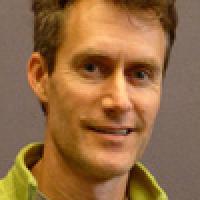
2019 - Gregory Laughlin
233rd Meeting January 2019, Seattle, WA
"A Color Out of Space: ‘Oumuamua’s Brief and Mysterious Visit to the Solar System"
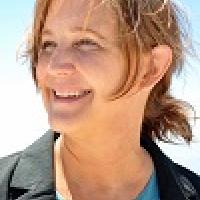
2018 - Debra Fischer
232nd Meeting June 2018, Denver, CO
"Exoplanets: Past, Present, and Future"

2018 - Scott Bolton
231st Meeting January 2018, Washington, DC
"The New Jupiter: Results from the Juno Mission"

2017 - Katherine Freese
230th Meeting June 2017, Austin, TX
"Dark Matter in the Universe"
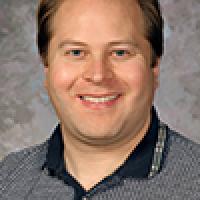
2017 - William Bottke
229th Meeting January 2017, Grapevine, TX
"Early Solar System Bombardment: Exploring the Echos of Planetary Migration and Lost Ice Giants"
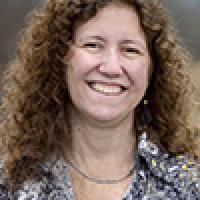
2016 - Gabriela González
228th Meeting June 2016, San Diego, CA
"LIGO Detection of Gravitational Waves"

2016 - S. Alan Stern
227th Meeting January 2016, Kissimmee, FL
"The Exploration of the Pluto System"
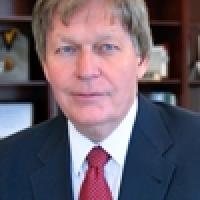
2015 - Daniel Baker
225th Meeting January 2015, Seattle, WA
"New Results About the Earth's Van Allen Radiation Belts"

2014 - David Spergel
224th Meeting June 2014, Boston, MA
"New Probes of Dark Energy"
| Meeting | Lecturer | Lecture Title | Citation |
|---|---|---|---|
| 223rd Meeting - January 2014 Washington, DC |
Robert Williams | "The Hubble Deep Field and Its Legacy" | For his strong scientific leadership as Director of the Cerro Tololo Inter-American Observatory, Director of the Space Telescope Science Institute, and President of the International Astronomical Union, an example of which is his instigation and leadership of the Hubble Deep Field project, which has provided us with an exquisite view of the early universe and a deeper understanding of very young galaxies. |
| 222nd Meeting - June 2013 Indianapolis, IN |
David Latham | "The Search for Habitable World" | For his pioneering work in the search for habitable worlds, including instigation of the HARPS-N Collaboration that can coordinate spectroscopy with transit photometry in the Kepler field, analysis of current Kepler data, and plans for rocky planet searches and spectroscopy of exoplanet atmospheres. |
| 221st Meeting - January 2013 Long Beach, CA |
B. Thomas Soifer | "The Spitzer Space Telescope: Science Return and Impact" | For his outstanding leadership of the Spitzer Mission that advanced the field of infrared astronomy, enabling new phenomena and major discoveries about galaxies, star formation regions, planet-forming disks, exoplanets, and the history of the universe. |
| 220th Meeting - June 2012 Anchorage, AK |
Ewine F. van Dishoeck | "Laboratory Astrophysics as Key to Understanding the Universe" | For her outstanding research in observational, laboratory, and theoretical astrochemistry, her unflagging efforts to raise awareness of the importance of astrochemistry in the astronomical, physical, and chemical communities, and her development of an outstanding department at the University of Leiden in the field of molecular astronomy. |
| 219th Meeting - January 2012 Austin, TX |
Lyman A. Page | "The CMB and Neutrinos" | For his leadership role as instrument scientist on WMAP whose accurate measurements of the Cosmic Microwave Background constrained fundamental cosmological parameters, including the geometry, age and composition of the Universe, opening the era of precision cosmology. |
| 218th Meeting - May 2011 Boston, MA |
Malcolm Longair | "The 2050 Decadal Survey of Astronomy and Astrophysics" | For his pioneering work on the cosmic evolution of powerful radio galaxies and their environments, for his leadership roles including Astronomer Royal of Scotland, Director of the Royal Observatory, Edinburgh, and Head of the Cavendish Laboratory, and for his exemplary expositions of science through both books and visionary lectures. |
| 217th Meeting - January 2011 Seattle, WA |
Carolyn C. Porco | "Cassini Eyes the Rings of Saturn" | For pioneering in the study of planetary ring systems and leeading the imaging science team on the Cassini mission. She and her team have provided a more complete understanding of the atmosphere, satellites and rings of Jupiter and have revealed the detailed structure, composition, and evolutionary history of Saturn's rings, while also discovering seven new moons, a hydrocarbon lake on Titan, and water vapor plumes on the moon Enceladus. |

